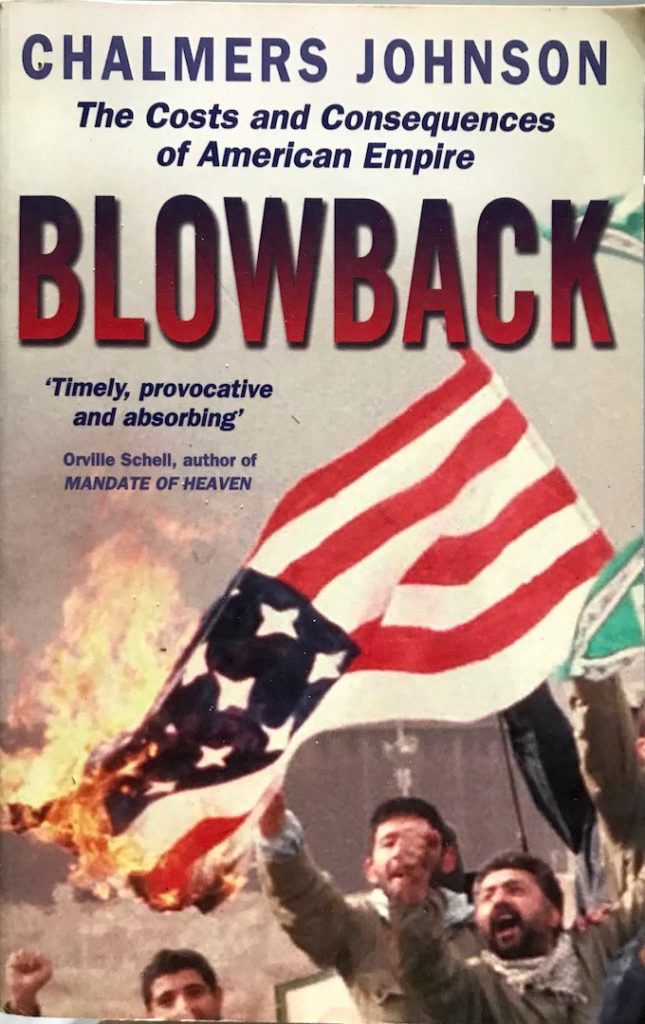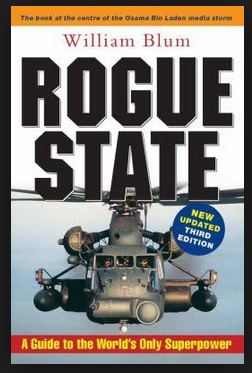
17 Aug, 2017
What Charlottesville and the emergence of white supremacists means for the future of global travel
Bangkok – The emergence of the American white supremacist movement in the streets of Charlottesville, Virginia, has opened up a Pandora’s Box of issues that will have a significant impact on travel & tourism to and from the United States and around the world. By further complicating an already unstable geopolitical environment, it will have a ripple-effect impact right across the transport, travel & tourism chain of command. Unfortunately, the living-in-denial industry is ill-prepared to deal with it.
 |
The Buddhists call it Karma. In the West, it is known as “what goes around, comes around”. Geopolitical analysts call it simply “Blowback.” The United States and the global travel & tourism industry are both set to pay the price of ignoring the early warning signs. With the chickens now coming home to roost, this analysis offers some points to ponder.
What follows is being written from a position of strength. As a Muslim journalist, I personally have been at the receiving end of white supremacist rage. For 15 years (January 1997-July 2012), I wrote a column in the Bangkok Post called Soul-Searching in which I consistently warned of America’s destabilising role in global geopolitics. Some of the column’s most virulent critics were American, British and Australian supremacists residing in Thailand and Asia. They responded with letters to the Bangkok Post spewing Islamophobic hate, using language not very different from that being used by the white supremacists in the U.S. today. Their letters are all a matter of record in the newspaper’s archives.
The Bangkok Post, which claims to be the “Newspaper You Can Trust”, terminated my column without any explanation in July 2012. In hindsight, I am proud to have been the only journalist to have warned about U.S. homegrown extremism and its implications for the American empire. No empire lasts forever, none. And unjust rulers always fall, always. The only other tourism personality (that I know of) who had the courage to publicly sound similar warnings is Prof Jim Dator of the University of Hawaii.
Here are some of my past columns published in both Travel Impact Newswire and the Bangkok Post which offer food for thought in the context of current developments:
Is Travel & Tourism Ready for the Return of The Ugly American?
How American right-wing extremists fan the flames of Islamophobia
Lies and the Lying Liars Who Tell Them
U.S. is No Longer the Country it Once Was
“War on Terror” is a War Without End
Beware the “Other Global Warming”
Asia Must Influence New World Order, Not Be Influenced by It
The Impact On Global Geopolitics
The most important current development is that the U.S.’ role as a globocop plus judge, jury and executioner is over. The U.S. is no longer a champion of democracy, human rights and freedom. This was America’s competitive advantage in the past, what made it different from the other superpowers. No longer. Now under a mercurial, unpredictable leader who is ripping up international agreements, it has lost all trust and credibility and is falling victim to its own lies, hubris and arrogance. All empires suffer the same fate. The question is whether America’s fall is going to be a hard or soft landing.
An End To Double Standards
Dealing with terrorism and extremism has long been marked by double standards. Since 9/11, successive U.S. administrations were so busy chasing Islamic terrorists that they forgot about their homegrown white supremacist terrorists. Charlottesville is the result.
But there were many warning signs. This past Aug 5 marked five years since an American neo-Nazi white supremacist terrorist killed six people at a Sikh Gurdwara in Oak Creek, Wisconsin. That is only one of many shootings of Asians mistaken for Muslims. These acts of violence were treated as “isolated incidents” perpetuated by “lone gunmen”. U.S. officials only reluctantly called them what they really are: Acts of terrorism. On the other hand, acts of violence by Muslims are ALWAYS called terrorism and get far more publicity.
Another double-standard is in the response to anti-Semitism and Islamophobia. While Jewish groups are wringing their hands about the anti-Jewish sloganeering by the U.S. white supremacists, they should reflect on the political and financial support extended by Jewish Zionist and Israeli lobby groups to the Islamophobia industry, seeking to falsely portray Islam as a religion of violence and extremism. Today, it’s blowback. U.S. supremacists are attacking Jewish groups, too. The law of unintended consequences spares no-one.
Here are some of my past columns on this topic:
Lee Kuan Yew’s formula for tackling the “cancer” of global terrorism
The day Lee Kuan Yew cited the problematic role of the U.S. Jewish lobby
New Research Unveils the Link between “The Israel Lobby and US Foreign Policy”
The impact on Brand USA
The Charlottesville fracas received global coverage, as did Mr. Trump’s subsequent press conferences. What is the impact on Brand USA? Is the U.S. tourism industry assessing the fallout? What does it plan to do about it? Does it plan to hold anyone accountable? A nation’s leader is technically supposed to be its best Brand Ambassador. I’m not sure Mr. Trump fits the bill. And he has more than three years still left. A country whose marketing genius can hoax the world into buying colas, burgers, pizzas and wars now has to find creative ways of spinning itself out of this mess.
Impact on U.S. Visitor Arrivals
As the U.S. brand image suffers, so will inbound-outbound visitors flows.
The U.S. recorded 5.6 million international visitors in January 2017, up 2% over January 2016, the first month of growth in total U.S. visits since June 2016. According to the U.S. Department of Commerce, eight of the nine major overseas regional markets recorded decreases in non-resident visits in January 2017: Western Europe (-4.6%), South America (-8.5%), Oceania (-5.9%), the Middle East (-23.1%), Central America (-6.1%), the Caribbean (-6.5%), Eastern Europe (-7.0%), and Africa (-11.2%). Asia was the only region to report an increase (7.1%).
Some of the U.S.’ traditionally strong markets all declined such as Japan -3.2%, the UK -9%, Brazil -14%, Germany -7% and Australia -8%. The only bright spots were Mexico (1.5 million, +2%) and Canada (1.5 million, +9%). China (excluding Hong Kong), recorded the largest percentage growth, +16.6%. South Korea was up 12% and India 3%.
Even though U.S. tourism is now heavily dependent on China, the Trump administration is spoiling for a fight with that emerging giant. If that occurs, the U.S. can kiss goodbye to tourism from China.
These shifts in travel to the U.S. will lead to corresponding shifts in global travel. America’s loss will be other countries’ gain. Other contributing factors include visa restrictions, long security queues at the U.S. airports and no shortage of competing destinations. On the outbound sector, U.S. travellers are avoiding places where they, too, may feel unsafe. All have significant implications for airlines, hotels and marketing budgets.
Impact on Americans Residing Abroad
When Muslim extremists commit acts of violence, all Muslims get tarred by the same brush. We are asked to condemn and denounce the extremists and prove that the rest of us are “moderates”. Otherwise, we are tagged “terrorist sympathisers.” Today, it is our turn to ask: Where are the American moderates? Why am I not hearing condemnations and denunciations of their homegrown white supremacists?
Many countries in Asia and all around the world give Americans visa-free access. This means American supremacist extremists can walk into all these countries, no questions asked. Should that privilege be revoked? Shouldn’t Americans also face visa curbs?
What about American-Israeli dual nationals, who are known security threats to the Islamic countries? In Asia, these dual nationals are embedded in Bangkok, Singapore, Manila, Yangon and other ASEAN countries. As Israelis, they would not have access to Malaysia, Indonesia, Brunei, Bangladesh, Pakistan and other countries. As Americans, they laugh their heads off as they walk past immigration authorities everywhere.
The Implications For The Private Sector
On August 16, Mr. Trump’s Strategic and Policy Forum was disbanded. This is what the full statement said:
“As our members have expressed individually over the past several days, intolerance, racism and violence have absolutely no place in this country and are an affront to core American values. The President’s Strategic and Policy Forum was conceived as a bi-partisan group of business leaders called to serve our country by providing independent feedback and perspectives directly to the President on accelerating economic growth and job creation in the United States. We believe the debate over Forum participation has become a distraction from our well-intentioned and sincere desire to aid vital policy discussions on how to improve the lives of everyday Americans. As such, the President and we are disbanding the Forum. Job creation and supporting an inclusive pro-growth agenda remain vitally important to the progress of our country. As Americans, we are all united in our desire to see our country succeed.”
All well and good. But the dissolution opens up wider questions about the principles of multinational corporations vis a vis U.S. foreign policy at a global level. Many operate in the Islamic world generating significant revenues. What have these U.S. companies done to confront anti-Muslim hate spewed out by the Islamophobia industry? If nothing, why not? If these companies all abhor “intolerance, racism and violence,” shouldn’t the same principles be applied globally? Or again, is it a question of different strokes for different folks?
Impact on Global Tourism
Finally, what is the global travel & tourism industry doing about all this? Does it have the guts to generate the debate that these serious challenges deserve in various forums and conferences? What do the so-called “thought-leaders” and “visionaries” have to say? Outgoing UN World Tourism Organisation Secretary General Dr Taleb Rifai wants to see travel & tourism help make the world a better place. For sure, all this house-cleaning, soul-searching and introspection eventually will make the world a better place, but if only travel & tourism gives itself a reality check and ceases becoming a victim of its own brochures.
Conclusion
 |
One of the most prescient books I ever read was by ex-U.S. Foreign Service officer William Blum, called “Rogue State.” This book contains the famous quote: “The pursuit of the American dream is becoming the rest of the world’s nightmare.” That forecast is proving more true by the day.
So far, our so-called “Industry of Peace” has no response. That is one major reason why it never gets taken seriously at the global level. With millions of jobs at stake, our industry leaders still can’t muster the courage to take a stand.
Following the Sept. 11 attacks, the U.S. Department of Defense designated the retaliatory attacks on terrorist hideouts in Afghanistan as “Operation Infinite Justice.” Although the name was later to changed to “Operation Enduring Freedom”, the U.S. is discovering that there is a much greater omniscient, omnipotent, omnipresent power to whom even U.S. presidents eventually have to answer.
That Greater Power is now executing an “Operation Infinite Justice”.
The end result will be good — eventually. But as the only travel journalist to have got it 100% right so far, I will say that it’s going to get worse before it gets better.
NOTE: Industry events organisers with the guts to see these issues publicly debated will find me a ready and willing speaker.



Liked this article? Share it!